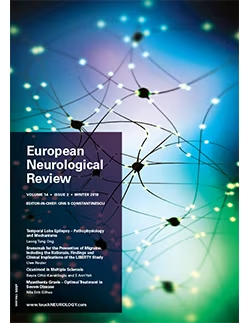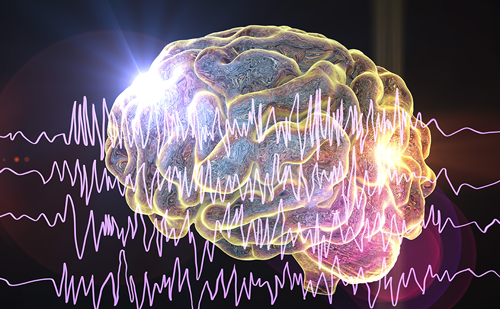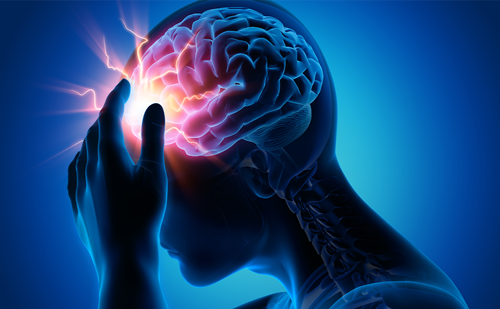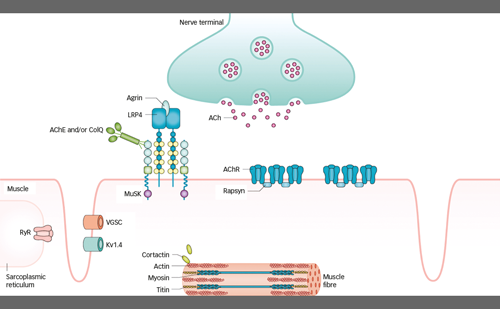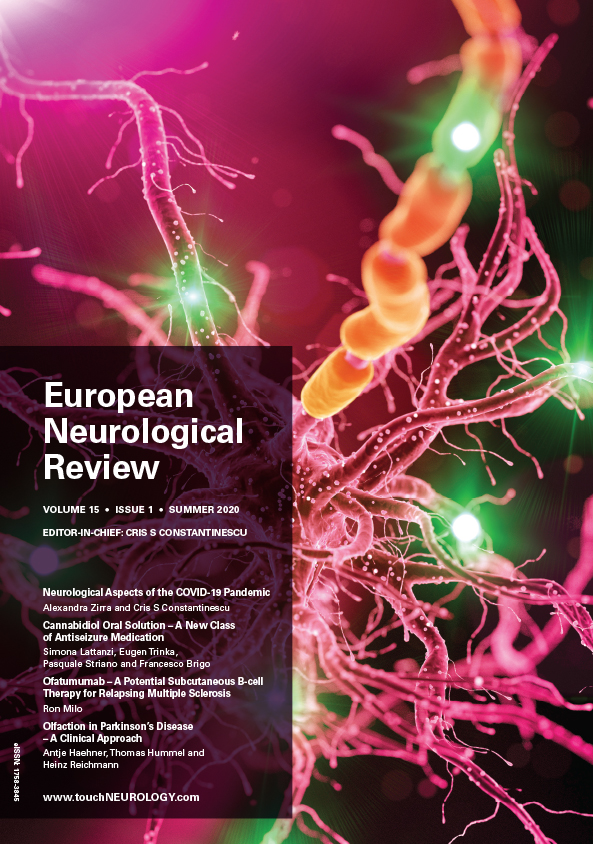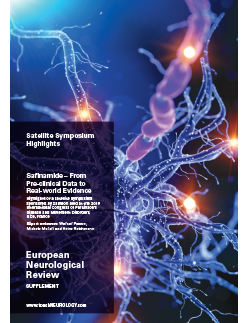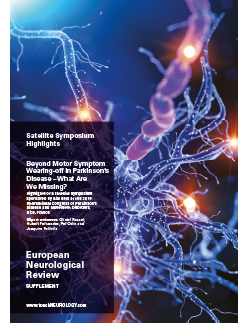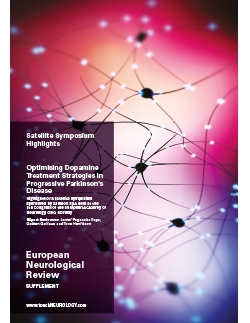EUROPEAN NEUROLOGICAL REVIEW – VOLUME 14 ISSUE 2 – WINTER 2019
Welcome to the winter edition of European Neurological Review!
This edition is introduced by our esteemed Editor-in-Chief, Cris Constantinescu. Topics covered include management of neuromuscular diseases, erenumab for difficult-to-treat migraine, pathogenesis of temporal lobe epilepsy, and ozanimod for multiple sclerosis. There are also two accompanying supplements highlighting the proceedings of satellite symposia on Parkinson’s disease, which took place at the 5th Congress of the European Academy of Neurology:
Beyond Motor Symptom Wearing-off in Parkinson’s Disease – What Have We Learned?
Werner Poewe, Angelo Antonini, K Ray Chaudhuri, María C Rodríguez-Oroz
Optimising Dopamine Treatment Strategies in Progressive Parkinson’s Disease
Javier Pagonabarraga, Gaëtan Garraux, Tove Henriksen
Thank you to all of our contributing authors and reviewers. As highlighted by our Editor-in-Chief in the Foreword, we’re now accepting submissions to our 2020 editions; please visit our submission site for more information.
Welcome to the latest edition of European Neurological Review, which features a wide range of articles of interest to neurologists and other practitioners involved in the care of patients with neurological illness. As we move into a new decade, the field of neurology continues to face fresh challenges. Despite an increased understanding of the pathophysiological […]
Expert Interview
Therapeutic plasma exchange (TPE) has been an accepted treatment for specific neurological disorders for several decades. For some medical professionals, it is seen as an effective treatment option alongside immunomodulatory therapies and other medicines. But its benefits for patients still need to be more widely recognised among medical professionals in many countries. Recent innovations in […]
Editorials
Seizure is a paroxysmal event caused by the excessive, hypersynchronous discharge of neurons in the brain, which causes alteration in neurologic function.1 Seizures can occur when there is a distortion between the normal balance of excitation and inhibition in the brain. The factors that cause this alteration in the balance of excitation and inhibition can […]
Migraine is the most common neurological disorder and one of the most disabling health disorders worldwide, often occurring in working age, and in young adult and middle-aged women.1 It is a debilitating condition that is hard to treat, can last anywhere from 4 hours to 3 days and has a substantial negative impact on quality […]
Reviews
Multiple sclerosis (MS) is an inflammatory disease of the central nervous system affecting almost 3 million individuals worldwide.1–3 The precise pathogenesis of the disease is unknown, though migration of peripheral T and B lymphocytes into the central nervous system is considered to be one of the major pathophysiologic mechanisms.4–6 Sphingosine-1-phosphate (S1P) modulators, through induction of […]
Myasthenia gravis (MG) leads to muscle weakness, which increases with repetitive use of muscles; in the morning, many patients are symptom-free.1,2 Diplopia, ptosis and weakness in other muscles innervated by cranial nerves, are typical. The muscle weakness is, in most patients, generalised with weakness also in the extremities, and sometimes in respiratory muscles. Muscle weakness […]

Trending Topic
Dravet syndrome is a rare genetic disorder that affects approximately 1 in 15,700 individuals. It is one of the most severe epilepsy syndromes of early childhood, with high morbidity and mortality rates.1,2 It is characterized by seizures that begin in infancy and can lead to intellectual disability, developmental delays and a range of other neurological problems.3 The SCN1A gene […]
Journal Archive
European Neurological Review is a peer-reviewed, free-to-access, bi-annual neurology journal comprising review articles, case reports, practice guides, theoretical discussions, and original research. It features balanced and comprehensive articles written by leading authorities, addressing the most important and salient developments in the field of neurology in practical terms.
Latest articles videos and clinical updates - straight to your inbox
Log into your Touch Account
Earn and track your CME credits on the go, save articles for later, and follow the latest congress coverage.
Register now for FREE Access
Register for free to hear about the latest expert-led education, peer-reviewed articles, conference highlights, and innovative CME activities.
Sign up with an Email
Or use a Social Account.
This Functionality is for
Members Only
Explore the latest in medical education and stay current in your field. Create a free account to track your learning.


